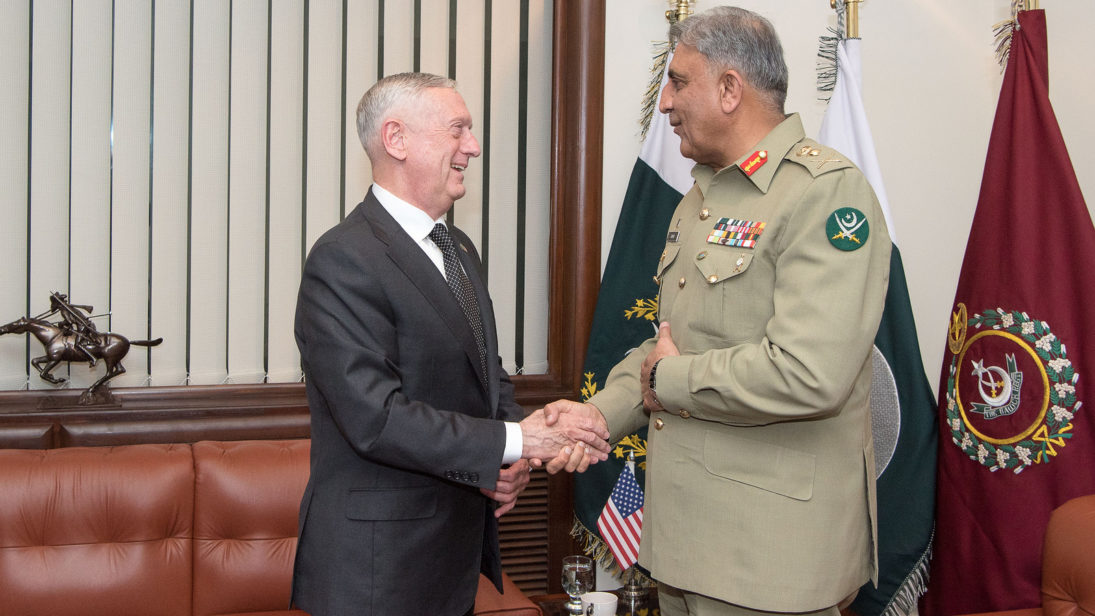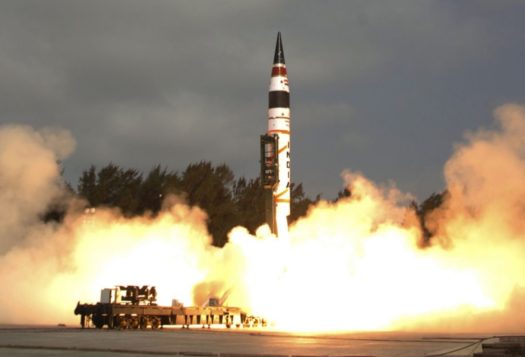
Pakistan Foreign Secretary Tehmina Janjua’s recent visit to Washington came at a time of heightened tensions between the United States and Pakistan, in the aftermath of the Trump administration’s decision to suspend security aid to the country earlier this year. Although visits to and from Washington highlight the importance of a continued relationship, bilateral relations have been characterized by their on again, off again nature ever since Pakistan joined President Bush’s war on terror. From the Pakistani perspective, this relationship has seen more lows than highs: Islamabad has often bemoaned America’s fixation on its own grievances while the “humiliations seem reserved for Pakistan.” Washington’s frequent criticism and President Trump’s occasional appreciation of Islamabad’s efforts to deal with terrorism demonstrate the inconsistent relationship between the two countries in the current context.
Recent Overtures
There seems to have been some effort from both sides recently to at least begin to mend ties. Prior to Janjua’s visit last week, U.S. Deputy Assistant Secretary of State Alice Wells stressed that the United States is not “walking away from Pakistan,” despite not having seen any of the “decisive and sustained changes” desired in Pakistan’s behavior towards counterterrorism. During her February visit to Islamabad, Senior Director for South and Central Asia at the U.S. National Security Council, Lisa Curtis, also expressed concern about the “continuing presence of the Haqqani network and other terrorist groups” within Pakistan and pressed the government to play a more definitive role in fighting them. More recently, however, U.S. Defense Secretary Jim Mattis has acknowledged that there has been a positive change in Pakistan’s behavior after Trump’s South Asia policy was announced.
For its own part, Islamabad has also highlighted the importance of its relationship with the United States, declaring its commitment to working towards fixing it. Despite the blame game, Pakistan’s relationship with the United States (and vice versa) will remain important, especially in terms of Afghanistan’s security dynamics. Although a peaceful settlement in Afghanistan is the only issue on which there is complete convergence between the two countries, the continued inability of the United States and NATO forces to stabilize Afghanistan brings Pakistan under frequent attack, especially with regards to Taliban access between the two neighboring states.
To this end, Janjua reiterated the importance of working together towards Afghan reconciliation and stability. While she welcomed President Ghani’s recent offer of peace talks with the Taliban, Janjua cautioned that its ultimate success is contingent upon including all relevant stakeholders in the negotiation process. The United States has also acknowledged that Ghani’s diplomatic approach has achieved the kind of international support that would not have been possible with military action alone.
Pakistan has also reiterated that visits to Islamabad and Washington—though useful—are not an alternative to open lines of communication and dialogue between the two states. “We believe a regular consultative process needs to be re-established, so that we can hold talks under a structured process,” said Janjua. Meanwhile, Pakistan’s National Security Adviser Nasser Khan Janjua ‘s one day visit to Kabul is an important development in the backdrop of the Afghan president’s peace offer to the Taliban and for the two neighbors to work together to promote peace in Afghanistan.
Lingering Issues
Both the United States and Pakistan recognize that the relationship is worth maintaining. While Islamabad is dependent on military hardware and the huge export market provided by the United States, Washington cannot afford to abandon Islamabad either. Pakistan’s nuclear arsenal, and its role in counterterrorism and the war in Afghanistan remain important for the U.S. national security agenda. Moreover, the United States needs access through Pakistan to resupply the Afghan National Security Forces and to ensure enduring peace in the country. Their shared interest on this issue could help both countries create a long-term and mutually beneficial partnership.
Unfortunately, differences between American and Pakistani thinking on other issues that tie into this have lead to hostility in the bilateral relationship. As a result, Pakistan has remained unable to convince the United States of the importance of its primary interests in Afghanistan. In the words of Mosharraf Zaidi, a Pakistani columnist, it is important for the United States to recognize that Pakistan’s “interests in Afghanistan are not a product of ambition, or grandeur, but of deep and existential fears about the damage an unchecked India can do to Pakistan.” The Trump administration’s National Security Strategy (NSS) 2017 highlights Afghanistan and the Indo-Pacific Region (IOR) as areas of importance and makes it clear that the United States is seeking to strengthen its strategic partnership with India, envisaging a greater role for India in Afghanistan. This further aggravates Pakistani fears of being encircled by India. Addressing Pakistan’s concerns, especially vis-à-vis Indian involvement in Afghanistan are important for promoting the stabilization of the United States-Pakistan relationship and supporting peace and security in Afghanistan.
Since stability in Afghanistan cannot be ensured without stability in Pakistan and vice versa, both the United States and Pakistan need to convince each other about the importance of their respective primary interests in the country. To this end, Pakistan needs to prove its commitment to ensuring a peaceful and stable Afghanistan. Likewise, the United States needs to tone down rhetoric and use diplomacy to reduce tensions.
Towards an Issue-Specific Relationship?
Pakistan’s recent overtures to Kabul and General Mattis’ appreciation of Pakistani efforts display a potential willingness on both sides to consider fresh approaches to manage the difficult albeit important relationship and provide an opportunity for both countries to repair bilateral relations.
Although high level meetings between officials can help build bridges in the short run, the relationship cannot be sustained in the long run without political will, mutual trust, and respect on both sides. A stronger relationship is possible only if both sides are willing to make compromises. Islamabad remains skeptical about its existing collaboration with the United States, which does not extend beyond the security issue. On the other hand, the U.S. focus on Pakistan has been through the Afghan lens alone. Perhaps Pakistan would be better off pursuing a transactional relationship characterized by issue-specific cooperation and not relying on the United States to fulfill its larger security and economic needs. In doing so Washington would no longer resent what it views to be Islamabad’s ingratitude while, for Pakistan, this would result in financial benefits and greater recognition of its efforts to curb terrorism.
***
Image: James N. Mattis via Flickr


